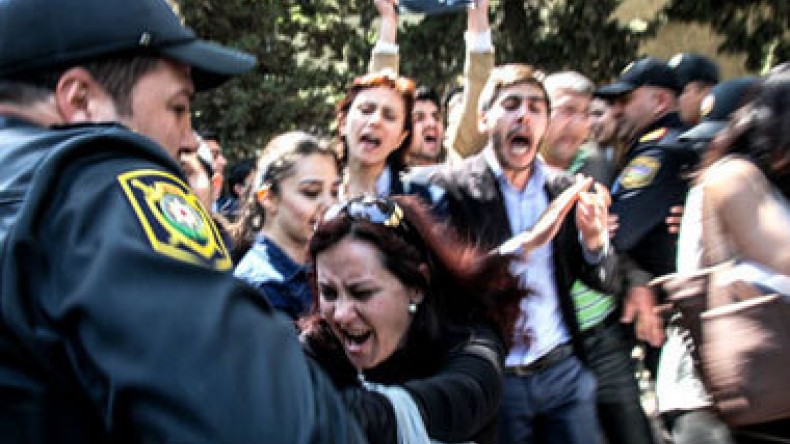
EurasiaNet: Jehovah’s Witnesses just like Islamist radicals are persecuted in Azerbaijan
Azerbaijani government even after becoming the chairman of the Council of Europe’s Commission of Ministers and assuring the world that there are no problems with democracy in the country, continues “cracking the whip”. It is stated in the article published on the website of the American organization EurasiaNet.
Besides the demand to lengthen prison sentences for three imprisoned civil-rights activists, deemed political prisoners by international human-rights groups, the Azerbaijani authorities by May 19 arrested three Jehovah’s Witnesses.
“How this jives with Baku’s recent pledge to uphold rule of law and promote “intercultural dialogue” during its six-month CoE tenure is open to interpretation,” the article reads.
Council of Europe Secretary-General Thorbjørn Jagland paid an official visit to Azerbaijan in May 20-21 to launch an “action plan” intended to help Azerbaijan meet its CoE obligations and address some fundamental human rights issues that exist in the country. “On May 21, prosecutors addressed those issues in their own way by requesting prison sentences of between six to nine years for civil-society activists Anar Mammadli, Bashir Suleymanli and Elnur Mammadov, charged, after critical monitoring of the 2013 presidential election, with alleged violation of NGO-registration rules and abuse of their official duties,” the author states.
In regard to the arrests of Jehovah’s Witnesses in Azerbaijan local news reported about the “police operation” against two middle-aged women and one teenage girl distributing leaflets. It is noted that their leaflets and magazines were confiscated. “Granted, the Azerbaijani authorities have experience in this area. But, more frequently, with alleged Islamic radicals,” EurasiaNet writes.
According to the article, the Jehovah’s Witnesses in Caucasus are largely treated as “nuisance” rather than a danger. However, their leaflets in Azerbaijan are confiscated just like banned pro-jihad literature.
It is noted that Baku court ruled in 2011 that confiscations of Jehovah’s Witnesses materials are illegal. “Maybe in the midst of all the excitement over Azerbaijan's plans to defend “intercultural dialogue” for the CoE, the Baku police simply forgot about that,” the author sums up.
Newsfeed
Videos






























